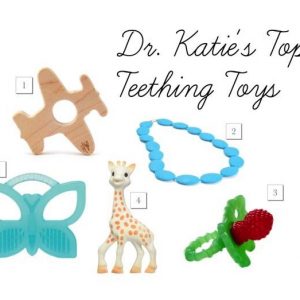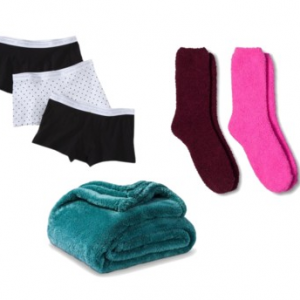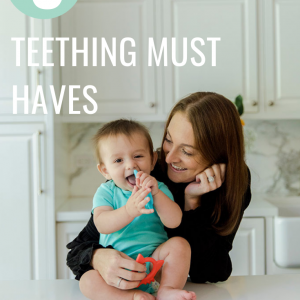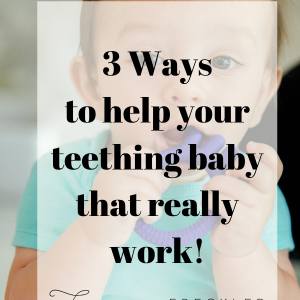
3 Teething Myths and 3 Teething Must-Haves
You have read all the books, implemented the perfect bedtime routine, and finally have your little one sleeping through the night. Then, just like that, they are waking up multiples times, irritable and crying. While teething does not bother some babies, others experience nighttime awakenings, irritability, and pain. And these teething symptoms then cause many parents restless nights, fear, and frustration. They will try anything to comfort their teething baby from natural teething remedies to old wives tales and trendy new fads. So let’s separate fact from fiction for a minute and break down common teething myths and must-haves for overcoming teething discomfort.
Common Teething Myths
1. Symptoms
The most common teething symptoms include biting or gnawing on the hands, drooling, irritability, and nighttime waking. Many parents also complain that their child experiences runny nose, diarrhea, and fever, despite these symptoms not being recognized by the American Academy of Pediatrics as indicative of teething.
With some generic symptoms, it can sometimes be difficult to tell whether your baby’s symptoms are from teething or from an illness. Although some babies can develop a low grade temperature during teething, it is important to see your pediatrician if your child has developed a temperature over 100.7 degrees. The persistence of symptoms is also an important indicator that your child might be fighting something other than teething.
Teething may cause your child to tug or scratch at his ears. But ear pulling may also indicate an ear infection. In fact, ear infections are more common while teething. When in doubt, it is always better to have your child evaluated by their pediatrician.
2. Necklaces, Tablets, and Gels (Oh My!)
Amber teething necklaces have become a popular way for parents to help soothe pain associated with teething. There is a belief that the amber releases a pain-relieving substance that is absorbed through the skin. In addition, retailers claim amber improves the immune system and reduces inflammation.
But there is no scientific research to support these claims.
More importantly, jewelry of any type can serve as a choking or strangulation risk for infants. The American Academy of Pediatrics (AAP) does not recommend infants wear jewelry of any kind. I recommend against the use of amber beads as a pain reducer and highly suggest that if you are going to use them, your child is under close supervision at all times.
Stay away from any teething products containing belladonna or gels with benzocaine. These ingredients are marketed as numbing agents for your child’s aching gums. However, the Food & Drug Administration (FDA) determined that these teething tablets and gels have ingredients that can be dangerous for babies. The FDA has issued warnings due to potential side effects such as seizures, difficulty breathing, lethargy, excessive sleepiness, and muscle weakness. It was recommended these products be taken off the market. Teething tablets are not currently sold in the United States.
3. Age and Order
Every infant is different. Usually, the average age for an infant to start teething is 6 months. However, some infants start teething at 4 months, and some start much later. No need to worry if your child doesn’t start teething “on time” or even in the typical order. But if your child has not started teething by 12 months of age, you should have him evaluated by his pediatrician.
Natural Teething Remedies and Must-Haves
1. Pressure and Cold
Have teething toys for your child to bite and chew. Solid toys without a gel filling are the most effective because you can cool or freeze them for added relief.
As a pediatrician, I love Dr. Brown’s teethers! Designed by a pediatric dentist, they are made to soothe and comfort your little one throughout the teething process. One of my favorite Dr. Brown’s teethers is the Flexees Teether. The ergonomic design is super easy for babies to grasp and reach all teething areas.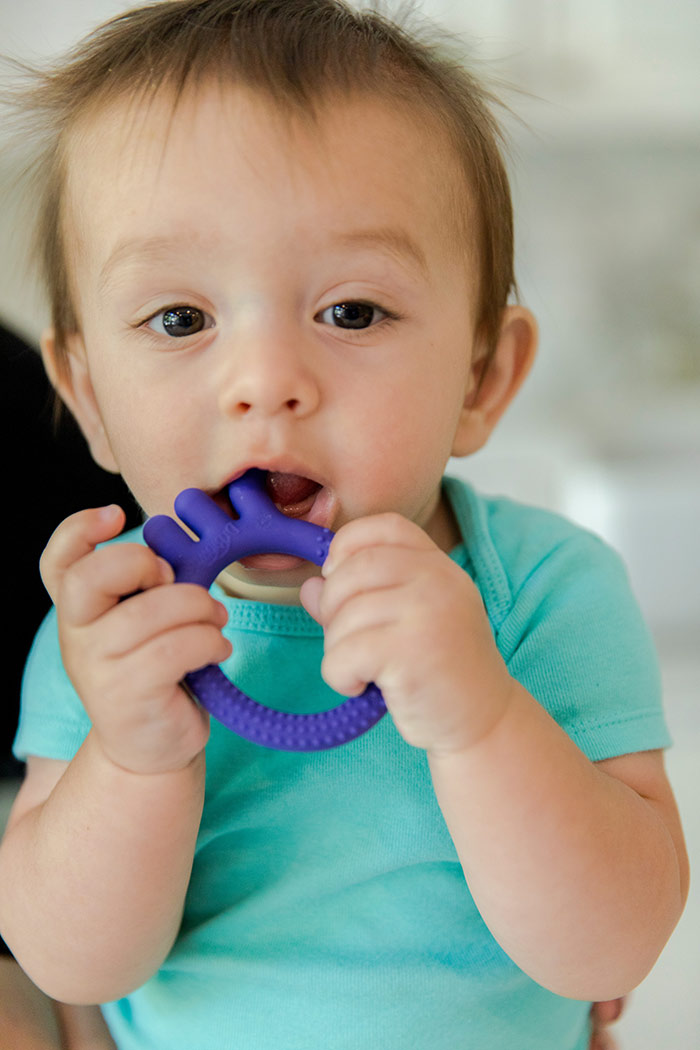
2. Pain Management
If the toys do not work and your child is in pain, you can definitely give him Tylenol or Motrin (if age 6 months or older). At each well visit, speak with your doctor about the appropriate dosing and plan for managing pain.
3. Patience
Remember, teething will pass. Sometimes it is hard, especially when your baby is up all night, but it will get better. So hang in there!
Carrie’s Favorite Teethers and Teething Items
- Boon Pulp Teething Feeder
- The Grippie Stick
- Silicone Teething Mitt
- Comotomo Silicone Baby Teether
- Sophie the Giraffe
- Baby Banana
- Camilia Teething Relief
- Nuby Silicone Teether
- Green Sprouts Cooling Teether
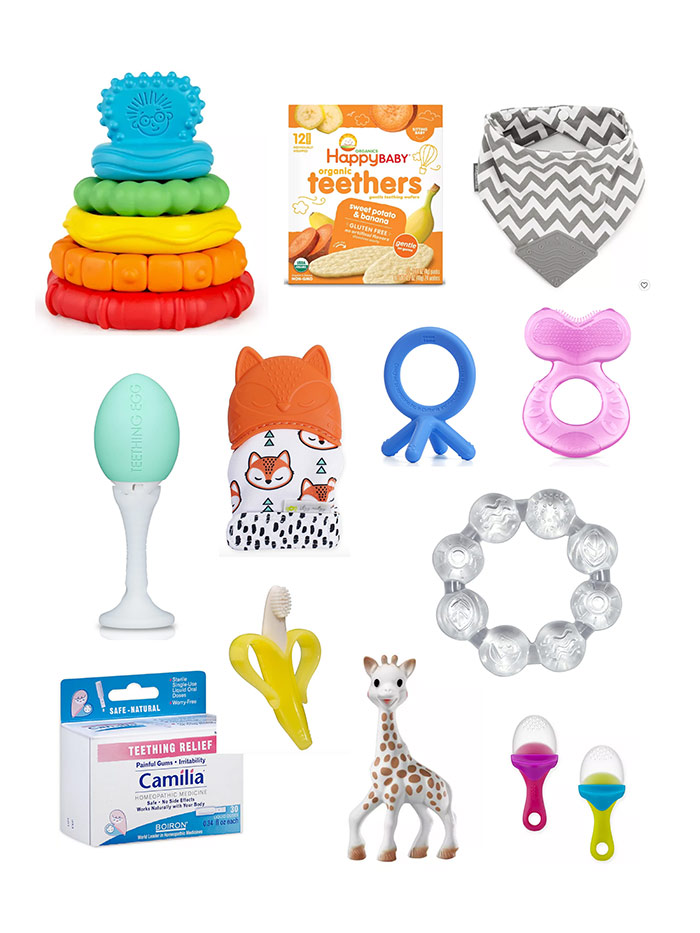
Final Thoughts on Teething Myths, Natural Teething Remedies & Must-Haves for Teething Babies
Every baby experiences teething eventually. Just know the discomfort will subside, and your little one will return to her happy (and hopefully sleeping-through-the-night) self once all the erupting is over. Always stick with traditional, proven methods of coping with symptoms. Remember the 3 Ps (Pressure, Pain management, and Patience), and steer clear of trendy teething myths.
~Dr. Katie




